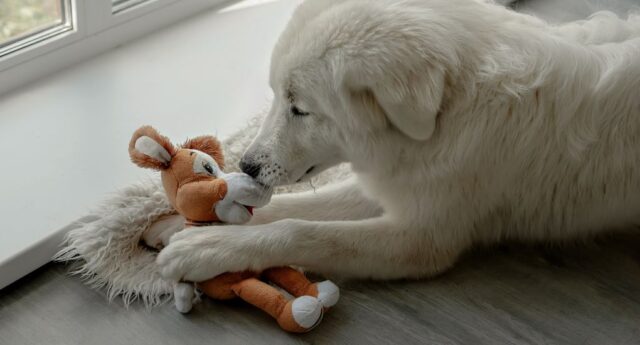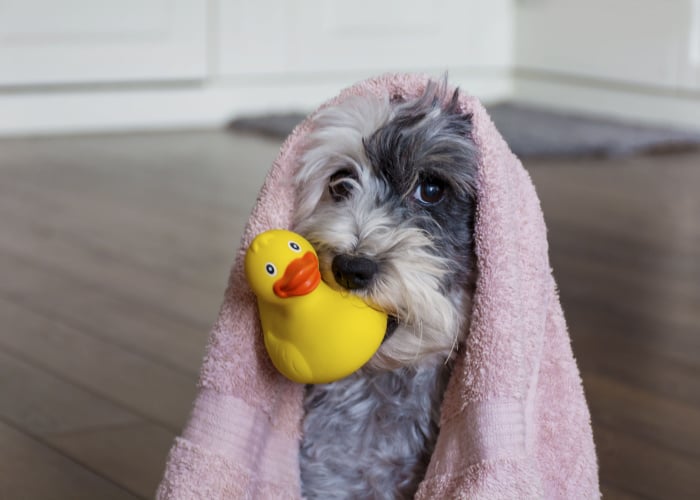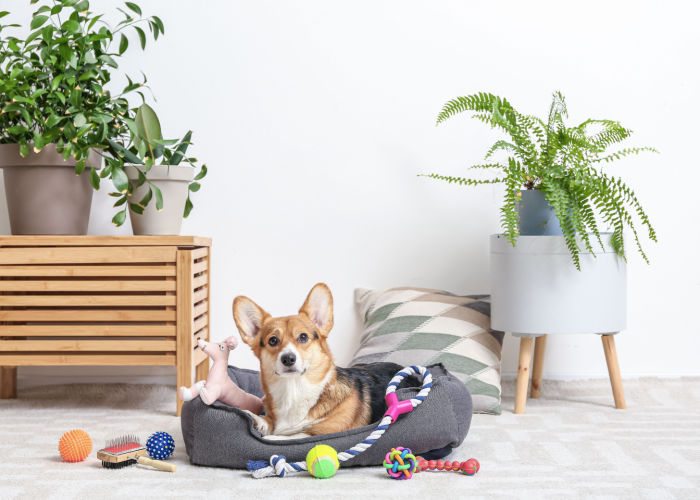
Fido's favorite toys might cause him more harm than good because of the dangerous bacteria found lurking on them.
Pet owners should be extra careful since their dog's toys could carry nasty germs, including intestinal bacteria and even worm eggs.
Regularly clean Fido's toys. Otherwise, these bad organisms could spread around your home.

The dog experts at Ruffwear, a popular brand for dog toys and accessories, conducted new research that proved a dog's seemingly innocent toys could be hiding some nasty microorganisms.
President of the British Small Animal Veterinary Association and clinical vet Carl Groman revealed the exact kinds of germs lurking on pet toys, most of which are from their own mouth.
“There are several different types of bacteria that can be found in the presence of teeth with periodontal disease. Including Peptostreptococcus, Prevotella intermedia, and Bacteroides fragilis to name a few,” Groman said.
Peptostreptococci can cause swelling, irritation, or a fatal infection of the inner lining of the heart.
Prevotella intermedia, on the other hand, can trigger gum disease and gingivitis.
While Bacteroides fagilis, the most unpleasant type of bacteria found in a dog's teeth, according to Ruffwear's research, can lead to reduced digestive capacity or constipation.
It's bacteria that comes from the dog's intestines.
How does it transfer to your dog's mouth, you ask? It's with how they groom themselves, according to Groman.
“Dogs groom themselves, which includes licking around their bottoms,” he said. “Not only might that transfer intestinal bacteria to the mouth or whatever they chew, but there is a possibility of transferring worm eggs which are known to stick to the fur around a dog’s rear end, to the chew toy.”
It's a vicious cycle of bacteria transferring from your dog's mouth to their toys, regardless of whether you regularly brush their teeth or not.
“Because they’re chewing on those toys, especially soft toys, they’ll pass the bacteria on.”
Unfortunately, it's not only an issue of your dog's health. These bacteria can also be passed on to the owners and may spread around their homes.
“There are possibilities for a chew toy to be a hazard to humans as well as harbor some interesting bugs which the dog will continue to incubate. Much of the risk is theoretical, or at any rate low risk, but it’s there,” he added.
With that, it's important that you also regularly clean Fido's toys.
And it doesn't only involve wiping them down with cleaning wipes. It takes more than that to disinfect our dog's toys completely.
Here are three tips to ensure that Fido's toys are clean and not spreading unwanted germs and bacteria.

Expert's Tips for Cleaning Dog Toys
Use a 60-degree wash when cleaning soft toys
Soft toys are one of the biggest carriers of bacteria since dog's saliva sinks into them. Cleaning it at least once a week is important.
Ruffwear's experts recommend washing soft toys once a week in the washing machine at a temperature of at least 60 degrees to ensure the bacteria can't grow.
Dry soft toys properly after washing
After washing the soft toys, you must ensure they are properly dried. Put them in the dryer or hang them out to dry.
Wet or damp soft toys are great breeding grounds for bacteria, so it's crucial to let them dry thoroughly.
Use washing-up liquid and warm water for hard toys
On the other hand, hard toys are much more relatively easier to maintain since saliva doesn't sink into them.
Just use a bit of washing-up liquid and warm water to keep them clean and germ-free.
But still, it's important to wash your dog's hard toys regularly, especially if it's their favorite to chew on.
For a more comprehensive guide on how to wash different types of dog toys, check out this article: How to Wash Dog Toys: Rope, Rubber, Plastic, and Plush
What do you think?
Do you clean your dog's toys regularly, or is it something you just realized is important after reading this article?
Share with us your thoughts in the comments section!












